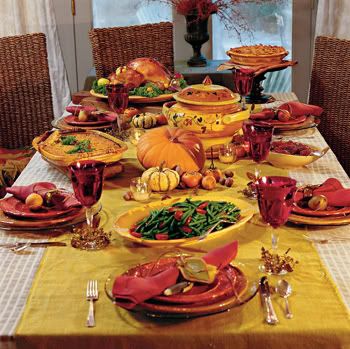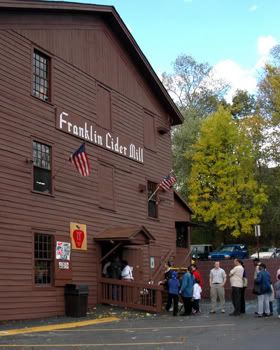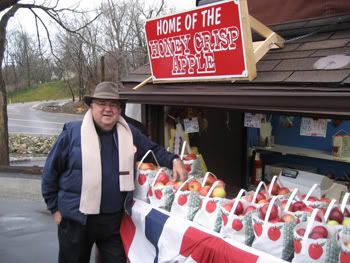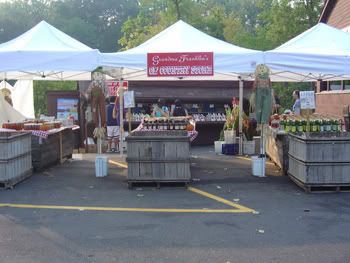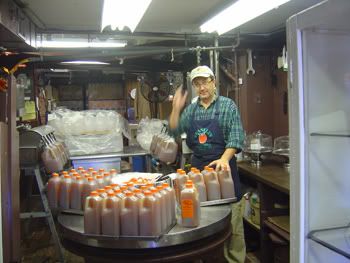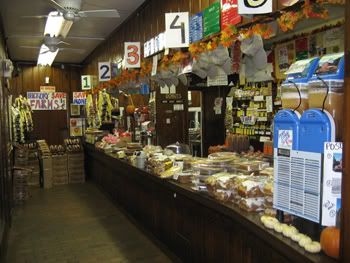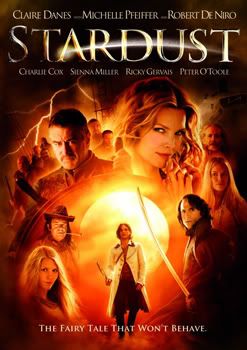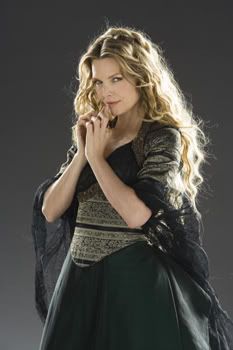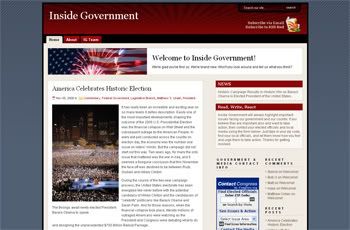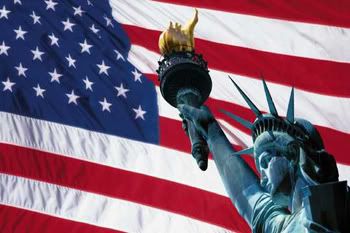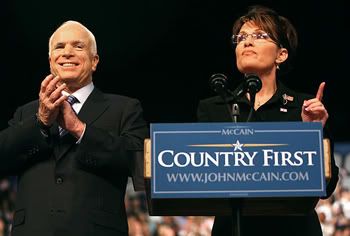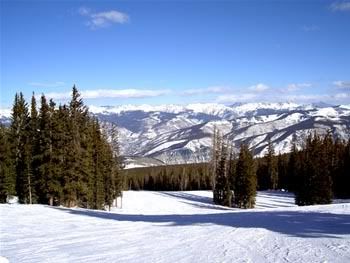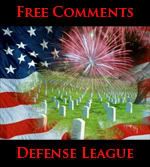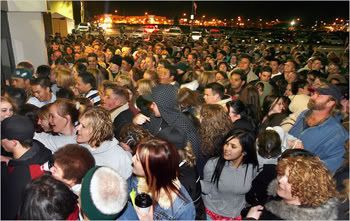
Black Friday is the Friday after Thanksgiving in the United States. It is the beginning of the traditional Christmas shopping season. Since Thanksgiving falls on the fourth Thursday in November in the United States, Black Friday may be as early as the 23rd and as late as the 29th of November.
Black Friday is not an official holiday, but many employees take the day off, which increases the number of potential shoppers. Retailers often decorate for the Christmas season weeks beforehand. Many retailers open very early (typically 5 am or even earlier) and offer doorbuster deals and loss leaders to draw people to their stores. Although Black Friday, as the first shopping day after Thanksgiving, has served as the unofficial beginning of the Christmas season at least since the start of the modern Macy's Thanksgiving Day Parade in 1924, the term "Black Friday" has been traced back only to the 1960s.
The term "Black Friday" originated in Philadelphia in reference to the heavy traffic on that day. More recently, merchants and the media have used it instead to refer to the beginning of the period in which retailers are in the black (i.e., turning a profit).
The news media frequently refer to Black Friday as the busiest retail shopping day of the year, but this is not always accurate. While it has been one of the busiest days in terms of customer traffic, in terms of actual sales volume, from 1993 through 2001 Black Friday was usually the fifth to tenth busiest day. In 2002 and 2004, however, Black Friday ranked second place, and in 2003 and 2005, Black Friday actually did reach first place. The busiest retail shopping day of the year in the United States (in terms of both sales and customer traffic) usually has been the Saturday before Christmas.
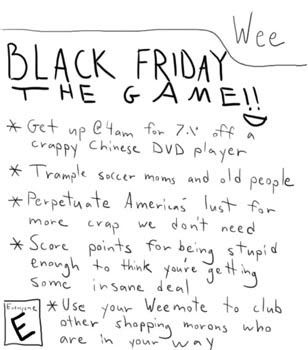
In many cities it is not uncommon to see shoppers lined up hours before stores with big sales open. Once inside the stores shoppers often rush and grab, as many stores have only a few of the big draw items. Electronics and popular toys are often the most sought-after items and may be sharply discounted. Because of the shoulder-to-shoulder crowds, many choose to stay home and avoid the hectic shopping experience. The local media often will cover the event, mentioning how early the shoppers began lining up at various stores and providing video of the shoppers standing in line and later leaving with their purchased items. Traditionally Black Friday sales were intended for those shopping for Christmas gifts. For some particularly popular items, some people shop at these sales in order to get deep discounts on items they can then resell, typically online.
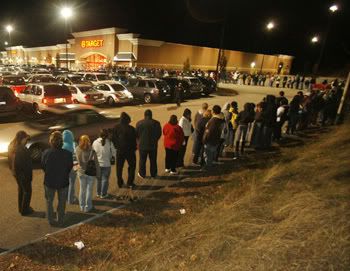
HISTORY OF THE TERM: BLACK FRIDAY:
The earliest uses of "Black Friday" come from or reference Philadelphia and refer to the heavy traffic on that day, an implicit comparison to the extremely stressful and chaotic experience of Black Tuesday (the 1929 stock-market crash). The earliest known reference to "Black Friday" (in this sense), found by Bonnie Taylor-Blake of the American Dialect Society, refers to Black Friday 1965 and makes the Philadelphia origin explicit:
JANUARY 1966 -- "Black Friday" is the name which the Philadelphia Police Department has given to the Friday following Thanksgiving Day. It is not a term of endearment to them. "Black Friday" officially opens the Christmas shopping season in center city, and it usually brings massive traffic jams and over-crowded sidewalks as the downtown stores are mobbed from opening to closing.The term Black Friday began to get wider exposure around 1975, as shown by two newspaper articles from November 29, 1975, both datelined Philadelphia. The first reference is in an article entitled "Army vs. Navy: A Dimming Splendor," in The New York Times:
Philadelphia police and bus drivers call it "Black Friday" - that day each year between Thanksgiving Day and the Army-Navy game. It is the busiest shopping and traffic day of the year in the Bicentennial City as the Christmas list is checked off and the Eastern college football season nears conclusion.The derivation is also clear in an Associated Press article entitled "Folks on Buying Spree Despite Down Economy," which ran in the Titusville Herald on the same day:
Store aisles were jammed. Escalators were nonstop people. It was the first day of the Christmas shopping season and despite the economy, folks here went on a buying spree. ... "That's why the bus drivers and cab drivers call today 'Black Friday,'" a sales manager at Gimbels said as she watched a traffic cop trying to control a crowd of jaywalkers. "They think in terms of headaches it gives them."The history of the day after Thanksgiving being the official start of the holiday shopping season is linked together strongly with the idea of Santa Claus parades. They are merged with a parade celebrating Thanksgiving. These parades, though mainly a celebration of thanksgiving, include an appearance by Santa at the end with the idea that 'Santa has arrived' or 'Santa is just around the corner'.
In the late 19th century and early 20th century, many Santa parades / Thanksgiving day parades were sponsored by department stores. These include the Toronto Santa Claus Parade sponsored by Eaton's and the Macy's Thanksgiving Day Parade sponsored by Macy's. Department stores would use the parades to launch a big advertising push. Eventually it just became an unwritten rule that no store would try doing Christmas advertising before the parade was over. Therefore, the day after Thanksgiving became the day when the shopping season officially started.
Later on, the fact that this marked the official start of the shopping season led to controversy. In 1939, America was suffering through the great depression. Retail shops would have liked to have a longer shopping season, but no store wanted to break with tradition and be the one to start advertising before Thanksgiving. President Roosevelt moved the date for Thanksgiving up a week leading to much anger by the public who wound up having to change holiday plans. Folks started referring to the change as Franksgiving.
Cool, eh? Today and through the weekend, I'll be at the homes of friends and family or at the movie theater. You won't catch me anywhere near a mall this weekend, or for that matter, most of the rest of the season through New Year's. It's not just a time-saving strategy, but a sanity-maintaining survival one.
Thanks for reading.
Technorati Tags: black friday, holiday shopping, christmas shopping, malls, waiting in line
Generated By Technorati Tag Generator








